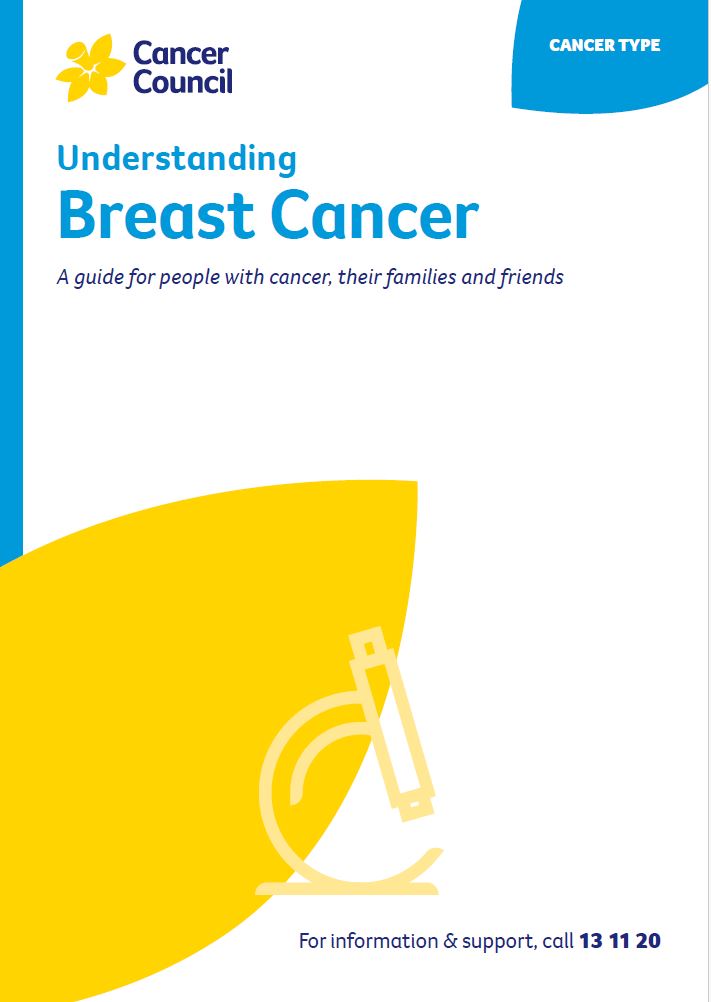- Home
- Breast cancer
- Treatment
- Hormone therapy
Hormone therapy for breast cancer
Find out how hormone therapy for breast cancer works, and which types are available based on age and menopausal status. Learn how it can reduce the risk of cancer recurrence.
Learn more about:
Overview
Hormone therapy, also called endocrine therapy or hormone-blocking therapy, slows or stops the effect of oestrogen. It is used to treat breast cancer that is hormone receptor positive.
Hormone therapy is often used to lower the risk of the cancer coming back. It may also be used to reduce the risk of certain conditions, including LCIS and some DCIS, developing into invasive breast cancer.
There are different types of hormone therapy. The type used will depend on your age, type of breast cancer and if you have reached menopause.
Tamoxifen
Tamoxifen can be used at any age, whether you have been through menopause or not. You need to take a daily tablet for 5–10 years.
Side effects – In females, tamoxifen can cause menopausal symptoms, although it doesn’t bring on menopause. It may also cause changes in thinking and memory, and vaginal discharge. There is a very small risk of developing cancer of the uterus (endometrial cancer), particularly if you have gone through menopause. Always let your treatment team know if you have any unusual vaginal bleeding. In males, side effects can include low sex drive (libido) and erection problems.
Tamoxifen increases the risk of blood clots. See a doctor immediately if you have swelling, soreness or warmth in an arm or leg, or a sudden shortness of breath or chest pain.
You are unlikely to have all of these side effects, and they usually improve with time. Your doctor and breast care nurse can help you to manage side effects.
Tell your doctor if you take an antidepressant. Some types of antidepressant drugs may affect how well tamoxifen works.
Aromatase inhibitors
After menopause, the ovaries stop making oestrogen. However, both females and males make small amounts of oestrogen in body fat and the adrenal glands. Taking aromatase inhibitors will help reduce how much oestrogen is made in the body. This is important because oestrogen can cause some cancers to grow.
Aromatase inhibitors (e.g. anastrozole, exemestane and letrozole) are mostly used if you have been through menopause, have had your ovaries removed, or are male. They may be used if you have not been through menopause but have a high risk of the cancer returning.
You may also be given a drug to stop the production of oestrogen (e.g. goserelin). This can be started before or after chemotherapy but must be continued while you take the aromatase inhibitor.
Side effects – Aromatase inhibitors can cause menopausal symptoms such as vaginal dryness and low mood. These drugs may also cause itchiness, joint pain, and weakening of the bones (osteoporosis).
Your bone health will be monitored during treatment and you may be prescribed a drug to protect your bones. Consider seeing a physiotherapist or exercise physiologist for an exercise plan.
If you have arthritis, aromatase inhibitors may worsen joint stiffness and pain. Exercise or medicines from your doctor may help. Your doctor may also suggest changing to one of the other types of aromatase inhibitor.
Ovarian suppression
If you have not been through menopause, drugs or surgery can stop the ovaries from producing oestrogen. This is called ovarian suppression.
It may also be recommended as an additional treatment for people taking tamoxifen or for premenopausal women taking an aromatase inhibitor instead of tamoxifen.
Temporary ovarian suppression
The drug goserelin stops oestrogen being made. It is given as an injection into the abdomen (belly) once a month for 2–5 years to bring on temporary menopause. Side effects are similar to those of permanent menopause. The drug may also help protect the ovaries during chemotherapy, so it is often given to women who want to preserve their fertility.
Permanent ovarian treatment
Ovarian ablation is rarely needed, but this procedure permanently stops the ovaries from producing oestrogen. It usually involves surgery to remove the ovaries (oophorectomy). Sometimes radiation therapy is used.
Ovarian ablation will bring on permanent menopause. This means you will no longer be able to fall pregnant naturally.
→ READ MORE: Targeted therapy for breast cancer
Podcast: Making Treatment Decisions
Listen to more episodes from our podcast for people affected by cancer
More resources
Dr Diana Adams, Medical Oncologist, Macarthur Cancer Therapy Centre, NSW; Prof Bruce Mann, Specialist Breast Surgeon and Director, Breast Cancer Services, The Royal Melbourne and The Royal Women’s Hospitals, VIC; Dr Shagun Aggarwal, Specialist Plastic and Reconstructive Surgeon, Prince of Wales, Sydney Children’s and Royal Hospital for Women, NSW; Andrea Concannon, consumer; Jenny Gilchrist, Nurse Practitioner Breast Oncology, Macquarie University Hospital, NSW; Monica Graham, 13 11 20 Consultant, Cancer Council WA; Natasha Keir, Nurse Practitioner Breast Oncology, GenesisCare, QLD; Dr Bronwyn Kennedy, Breast Physician, Chris O’Brien Lifehouse and Westmead Breast Cancer Institute, NSW; Lisa Montgomery, consumer; A/Prof Sanjay Warrier, Specialist Breast Surgeon, Chris O’Brien Lifehouse, NSW; Dr Janice Yeh, Radiation Oncologist, Peter MacCallum Cancer Centre, VIC.
View the Cancer Council NSW editorial policy.
View all publications or call 13 11 20 for free printed copies.

